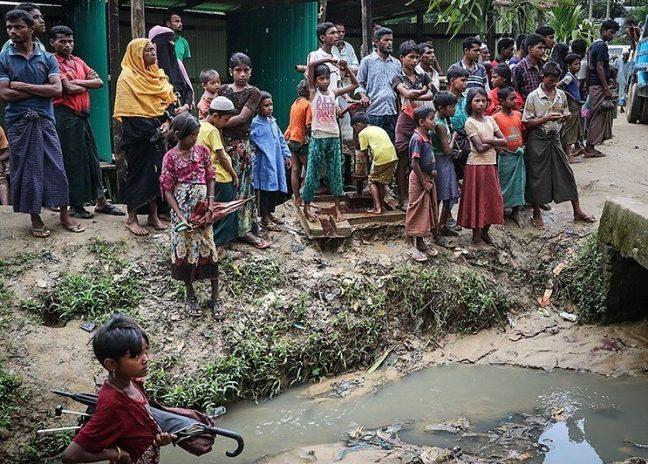University of Wisconsin professors hosted a seminar Tuesday to discuss the persecution of a Muslim minority group in Myanmar.
The event was hosted by UW’s Atheists , Humanists & Agnostics in conjunction with the Muslim Student Association and the Center for Southeast Asian Studies.
The lecture focused on whether or not the acts of violence against the Rohingya population by the Buddhist majority can be labeled as a genocide.
The Rohingya population, reaching around one million in Myanmar, has historically experienced inequality and violence, much of it coming from its own government. In 1982, the Myanmar government refused to grant Rohingyas citizenship, labeling the Rohingya population as “Bengalis” and excluding them from their rights.
Over the years, and even in 2017, the Rohingyas have experienced crimes against humanity, UW political science professor Scott Straus said.
“Crimes against humanity seems to be the consensus term on what is happening to the Rohingya today,” Straus said.
UW hosts international conference on refugees, immigrants in schools
These attacks include the murdering of men, burning of villages, forced deportation, rape of adolescent girls and women and general harassment of the Rohingya population, he said.The attacks are guided largely by military personnel, most of the who are predominately Buddhists, Straus said.
Straus said there is no real information on whether these acts can be labeled a genocide because specific intent to destroy a group must be evident.
“What we’ve learned over the last 20 years is that this question [of if this is genocide] is very hard to solve,” Straus said.
But Straus stressed that the acts of violence don’t need to be called a genocide in order to have a strong international response.
Executive order impacts students, faculty, researchers on campus, forcing many to speak out
UW political science professor Andrew Kydd said organizations like the Transnational Civil Society, a nongovernmental organization concerned with global issues, have been critical of the Myanmar military regime, and advocate intervening to protect the civilians that are under attack.
The United States has taken a step to see what the situation in Myanmar is like. Former President Barack Obama visited Myanmar in 2016 and current Secretary of State Rex Tillerson is set to visit Nov. 15.
Tillerson has stated his goal is to press the military for peace, allow the return of refugees and hold the individuals attacking the Rohingya accountable, which Kydd said is an “ambitious” agenda.
Political science professor Eunsook Jung said citizens from Indonesia have been sending resources to Bangladesh, where many of the refugees from Myanmar fled to. There is “some” help for the displaced Rohingya, Jung said.
In photos: Madison community stands in solidarity with refugees
Strause said he isn’t sure what the best case scenario of the situation is. He suggested some sort of immigration back into the country may occur but it would need a strong interference, which is unlikely since it is unfavorable by Russia and China.
Without a strong interference, however, it’s unclear if the situation will get better, Strause said.
“Their crisis is not going to be addressed in this generation,” communication arts professor Mary McCoy said. “There are no instructions in place to attend to the suffering they’re going through.”
____
Update 10:20 a.m.: This article has been updated to include the hosts of the event.
















